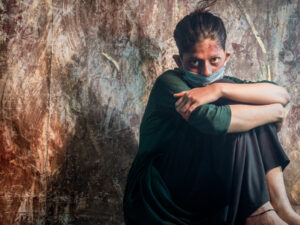
It has been reported that 20% of children are exposed to parent or caregiver intimate partner violence, and this exposure has significant implications for the health of both the survivors and the children. The policies around the COVID-19 pandemic have led to unique circumstances that have enhanced isolation for families and children suffering from complex issues such as intimate partner violence. Physicians believe many of the children exposed to this phenomenon have not only spent more time with their families, potentially exposed to even more violence than usual, but they have also suffered from reduced access to safe spaces like schools.
A new study published in the medical journal Pediatrics showed that Boston Children’s Hospital has received significantly more referrals for intimate partner violence during the pandemic than it did beforehand. Specifically, when researchers compared referrals to the Advocacy for Women and Kids in Emergencies (AWAKE) programs for the 11 months immediately prior to the COVID-19 pandemic to 11 months within the pandemic, they saw a dramatic increase in referrals that appeared related to the pandemic. From April 1, 2019 to February 29, 2020, AWAKE received 240 consultation requests. From April 1, 2020 to February 28, 2021, however, that number increased to 295.
The authors of the study suggest that the context of the pandemic has provided an opportunity for perpetrators of intimate partner violence to leverage social isolation for their purposes. They also point to the important role of pediatricians for supporting children exposed to this type of violence. According to their analysis, successful support services can be offered remotely. Further, given that the American Academy of Pediatrics (AAP) has recognized identification of intimate partner violence as one of the best ways to prevent the maltreatment of children, they suggest that pediatricians should be aware of the increase in incidence that is currently occurring.
Going forward, the authors suggest that pediatric health care settings may benefit from partnering with intimate partner violence agencies to more readily identify this type of violence and support children affected by it. Importantly, they note that collaborations and partnerships can help to mitigate the harm currently suffered from intimate partner violence.
Reference
Ragavan M, Miller E. Healing-Centered Care for Intimate Partner Violence Survivors and Their Children. Pediatrics. Published online March 22, 2022. doi:10.1542/PEDS.2022-056980
